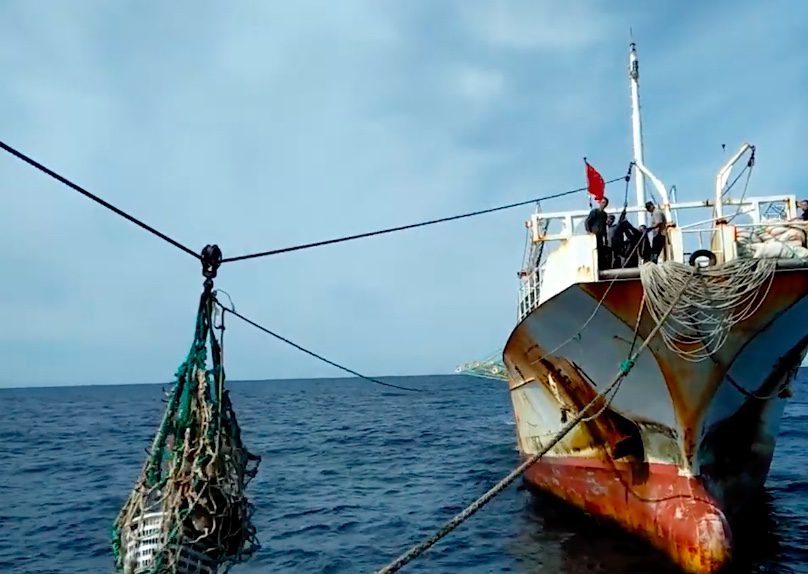
A Fleet Prone to Captive Labor and Plunder
China has expanded an armada of far-flung fishing vessels. And this has come at a grave human toll.
DANIEL ARITONANG GRADUATED from high school in May, 2018, hoping to find a job. Short and lithe, he lived in the coastal village of Batu Lungun, Indonesia, where his father owned an auto shop. Aritonang spent his free time rebuilding engines in the shop, occasionally sneaking away to drag race his blue Yamaha motorcycle on the village’s backroads. He had worked hard in school, but was a bit of a class clown, always pranking the girls. “He was full of laughter and smiles,” his high-school math teacher, Leni Apriyunita, said. His mother brought homemade bread to his teachers’ houses, trying to help him get good grades and secure work; his father’s shop was failing, and the family needed money. But, when Aritonang finished high school, youth unemployment was above sixteen per cent. He considered joining the police academy, and applied for positions at nearby plastics and textile factories, but never got an offer, disappointing his parents. He wrote on Instagram, “I know I failed, but I keep trying to make them happy.” His childhood friend Hengki Anhar was also scrambling to find work. “They asked for my skills,” he said recently, of potential employers. “But, to be honest, I don’t have any.”
At the time, many villagers who had taken jobs as deckhands on foreign fishing ships were returning with enough money to buy motorcycles and houses. Anhar suggested that he and Aritonang go to sea, too, and Aritonang agreed, saying, “As long as we’re together.” He intended to use the money to fix up his parents’ house or maybe to start a business. Firmandes Nugraha, another friend, worried that Aritonang was not cut out for hard labor. “We took a running test, and he was too easily exhausted,” he said. But Aritonang wouldn’t be dissuaded. A year later, in July, he and Anhar travelled to the port city of Tegal, and applied for work through a manning agency called PT Bahtera Agung Samudra. (The agency seems not to have a license to operate, according to government records, and did not respond to requests for comment.) They handed over their passports, copies of their birth certificates, and bank documents. At eighteen, Aritonang was still young enough that the agency required him to provide a letter of parental consent. He posted a picture of himself and other recruits, writing, “Just a bunch of common folk who hope for a successful and bright future.”
For the next two months, Aritonang and Anhar waited in Tegal for a ship assignment. Aritonang asked Nugraha to borrow money for them, saying that the pair were struggling to buy food. Nugraha urged him to come home: “You don’t even know how to swim.” Aritonang refused. “There’s no other choice,” he wrote, in a text. Finally, on September 2, 2019, Aritonang and Anhar were flown to Busan, South Korea, to board what they thought would be a Korean ship. But when they got to the port they were told to climb aboard a Chinese vessel—a rusty, white-and-red–keeled squid ship called the Zhen Fa 7. That day, the ship set out across the Pacific.
Read full report here
